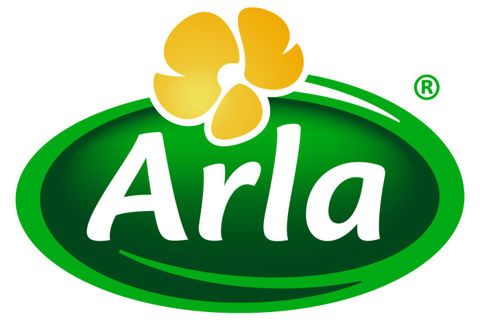From the incinerator to new packaging: Arla Foods explores new way to recycle plastic waste
- Read time:
- 2 min

- Published:
- 25 April 2023
- Contacts:
- Press contact
Plastic used for cheese production is finding new life in a large-scale test with German partner Südpack. Using a pyrolysis process, the plastic is kept within the loop and recycled into new packaging instead of being sent to incineration reducing the overall need for virgin plastic as well as the carbon footprint.
At Rødkærsbro dairy in Denmark they produce mozzarella cheese. Lots of it. And as the cheese needs to mature in specially designed films for about two weeks that requires quite a heavy use of plastic. The plastic films need to be multi-layered for food safety reasons but this also means they cannot be recycled through mechanical recycling which is the industry standard across Europe. Therefore, the only option so far has been to send them to incineration after fulfilling their essential role in the production process.
Now, in order to achieve a higher grade of recycling and as part of Arla’s commitment to improve circularity and eliminate the use of virgin fossil plastic, the farmer-owned dairy cooperative together with Südpack, a leading producer of high-performance films, is carrying out a large-scale test using pyroly-sis to convert 80 tonnes of plastic waste a year into new packaging. The pyrolysis process converts plastic waste into oil by exposing it to very high temperatures in a controlled environment.
“Instead of sending our plastic films to incineration, resulting in a one-off energy gain, we recycle them and use the recycled material to create new packaging thus reducing the carbon footprint as well as the need for virgin fossil plastic. It might sound obvious but in the complex world of recycling this is an exciting step in our journey towards fully circular packaging,” says Lead Packaging Development Manager at Arla Foods, Grane Maaløe.
Keeping it in the loop
Even if the plastic films were suitable for mechanical recycling, no process is currently available to bring the plastic into food contact material and as a result the films wouldn’t be recycled as new food packaging but downcycled and used for something else and exiting the loop.
“Utilising the processing capabilities at our plant in Germany, we can ensure that the films produced for Arla’s cheese maturing purposes do not exit the loop but instead are recycled into new packaging. A tonne of mixed plastic does not equal a tonne of new packaging but it does reduce the need for vir-gin plastic and it paves the way for increased investing in this infrastructure going forward,” says Business Unit Manager Dirk Hardow from Südpack.
Factoring in the loss of the electricity and thermal energy that incineration delivers, and the negative impact of transporting the films from Denmark to Germany, the calculation still comes out in favour of pyrolisis when it comes to overall carbon emissions. Per tonne of plastic waste handled, the full processing including the pyrolysis process emits up to 50 per cent less than sending to incineration.
Arla and Südpack will be testing this new setup with 80 tonnes in 2023 before evaluating the results.
Arla Foods is an international dairy company owned by more than 7,600 farmers from Denmark, Sweden, the UK, Germany, Belgium, Luxembourg and the Netherlands. Arla Foods is one of the leading players in the international dairy arena with well-known brands like Arla®, Lurpak®, Puck® and Castello®. Arla Foods is focused on providing good dairy nourishment from sustainable farming and operations and is also the world's largest manufacturer of organic dairy products.
Press contact


